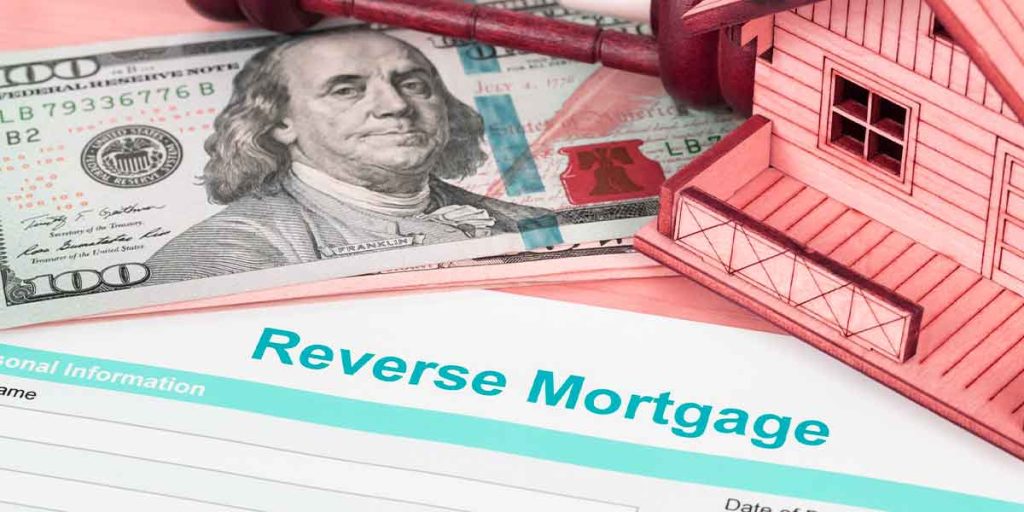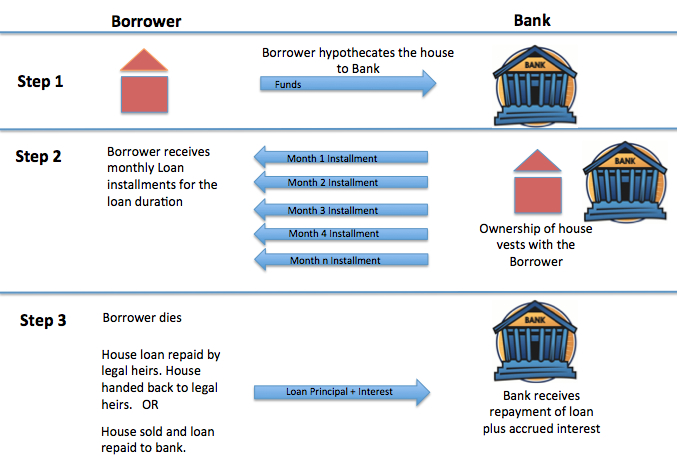The Process Involved When You Decide to Purchase Reverse Mortgage
The Process Involved When You Decide to Purchase Reverse Mortgage
Blog Article
Step-By-Step: Just How to Purchase a Reverse Home Loan With Self-confidence
Browsing the complexities of acquiring a reverse home loan can be difficult, yet a methodical strategy can encourage you to make educated decisions. It starts with assessing your qualification and recognizing the nuances of numerous financing options readily available out there. Involving with credible lending institutions and comparing their offerings is crucial for securing favorable terms. The procedure does not end there; cautious attention to documentation and compliance is necessary. As we explore each action, it ends up being obvious that self-confidence in this financial decision hinges on complete prep work and notified selections. What comes next in this important journey?
Recognizing Reverse Home Loans

The main mechanism of a reverse mortgage includes borrowing versus the home's value, with the financing amount raising in time as passion accrues. Unlike conventional mortgages, customers are not needed to make month-to-month payments; rather, the loan is paid back when the home owner sells the home, leaves, or passes away.
There are two major kinds of reverse home mortgages: Home Equity Conversion Home Mortgages (HECM), which are government insured, and proprietary reverse home mortgages offered by private lending institutions. HECMs normally provide higher defense as a result of their governing oversight.
While reverse home mortgages can use economic alleviation, they also feature costs, consisting of source charges and insurance premiums. Consequently, it is essential for potential debtors to completely comprehend the terms and effects prior to waging this monetary choice.
Analyzing Your Eligibility
Eligibility for a reverse home loan is mostly determined by several crucial aspects that prospective debtors need to think about. Primarily, candidates must be at the very least 62 years old, as this age need is established to guarantee that borrowers are approaching or in retired life. Additionally, the home needs to act as the consumer's primary home, which indicates it can not be a trip or rental building.
One more essential facet is the equity placement in the home. Lenders normally need that the borrower has an enough quantity of equity, which can influence the quantity available for the reverse home mortgage. Generally, the a lot more equity you have, the bigger the loan quantity you may get.
In addition, possible customers should show their capacity to satisfy financial obligations, including residential or commercial property taxes, property owners insurance, and maintenance costs - purchase reverse mortgage. This evaluation typically includes an economic evaluation carried out by the lending institution, which evaluates income, credit scores background, and existing financial obligations
Finally, the property itself have to meet details requirements, including being single-family homes, FHA-approved condos, or specific manufactured homes. Understanding these aspects is vital for establishing qualification and planning for the reverse home mortgage procedure.
:max_bytes(150000):strip_icc()/dotdash-reverse-vs-forward-mortgage-Final2-6961b02571a444ec8bfad146b6138665.jpg)
Researching Lenders
After identifying your eligibility for a reverse home loan, the following step involves researching lenders who provide these monetary products. It is critical to identify credible loan providers with experience backwards home loans, as this will certainly ensure you receive reliable assistance throughout the procedure.
Begin by reviewing loan provider qualifications and accreditations. Try to find loan providers that are participants of the National Reverse Home Mortgage Lenders Association (NRMLA) and are accepted by the Federal Real Estate Management (FHA) These associations can suggest a dedication to moral practices and conformity with sector standards.
Checking out consumer evaluations and endorsements can offer understanding into the lending institution's reputation and client service top quality. Websites like the Better Business Bureau (BBB) can additionally offer ratings and problem backgrounds that might aid educate your decision.
In addition, talk to monetary experts or housing therapists who specialize in reverse home mortgages. Their competence can aid weblink you browse the options available and advise credible loan providers based on your one-of-a-kind financial situation.

Comparing Funding Options
Contrasting lending choices is a crucial step in safeguarding a reverse home mortgage that straightens with your financial goals. When evaluating various reverse mortgage products, it is vital to think about the certain attributes, costs, and terms associated with each choice. Begin by examining the type of reverse home loan that finest matches your requirements, such as Home Equity Conversion Home Mortgages (HECM) or exclusive car loans, which might have various eligibility standards and advantages.
Following, take notice of the rate of interest and fees connected with each financing. Fixed-rate fundings give stability, while adjustable-rate choices may offer lower preliminary prices yet can fluctuate in time. Furthermore, take into consideration the upfront prices, including home loan insurance policy costs, source charges, and closing prices, as these can dramatically influence the general cost of the car loan.
Moreover, analyze the settlement terms and exactly how they line up with your long-term financial strategy. When the funding should be paid back is vital, recognizing the effects of exactly how and. By extensively comparing these factors, you can make an informed choice, ensuring your option sustains your economic well-being and offers the protection you look for in your retirement years.
Completing the Acquisition
As soon as you have actually very carefully examined your options and chosen the most appropriate reverse mortgage item, the following action is to wrap up the acquisition. This procedure includes a number of important actions, guaranteeing that all necessary paperwork is precisely completed and sent.
First, you will certainly require to collect all called for documentation, consisting of evidence of earnings, real estate tax declarations, and home owners insurance documents. Your lending institution will certainly give a list of specific files required to assist in the authorization procedure. It's critical to supply total and exact information to stay clear of hold-ups.
Following, you will undertake a comprehensive underwriting procedure. During this stage, the lender will certainly examine your financial scenario and the value of your home. This may include a home assessment to figure out the residential property's market worth.
Once underwriting is full, you will receive a Closing Disclosure, which lays out the final terms of the funding, consisting of charges and rate of interest. Review this record carefully to guarantee that it straightens with your assumptions.
Conclusion
In Recommended Reading final thought, browsing the process of acquiring a reverse home loan calls for a thorough understanding of qualification requirements, thorough research study on loan providers, and mindful contrast of Visit Your URL finance options. By systematically complying with these steps, individuals can make informed decisions, guaranteeing that the chosen mortgage aligns with economic goals and needs. Ultimately, a knowledgeable technique fosters confidence in securing a reverse home loan, providing monetary stability and assistance for the future.
Look for lending institutions that are participants of the National Opposite Home Mortgage Lenders Organization (NRMLA) and are accepted by the Federal Housing Administration (FHA)Contrasting finance alternatives is an important step in securing a reverse mortgage that straightens with your financial objectives (purchase reverse mortgage). Begin by evaluating the kind of reverse mortgage that finest matches your demands, such as Home Equity Conversion Home Loans (HECM) or proprietary lendings, which may have different eligibility standards and advantages
In verdict, navigating the process of buying a reverse home loan calls for a comprehensive understanding of eligibility criteria, attentive research on lenders, and careful contrast of loan options. Ultimately, a well-informed approach fosters confidence in safeguarding a reverse home mortgage, providing monetary security and assistance for the future.
Report this page